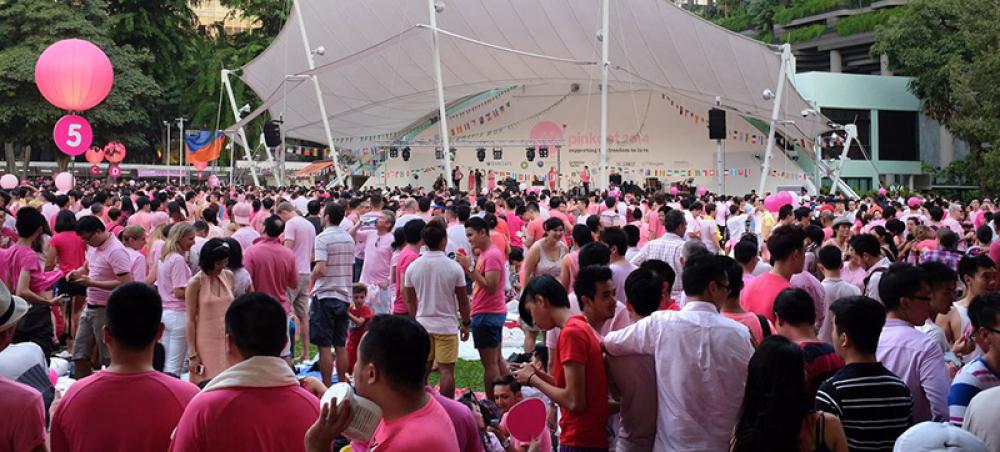Just Earth News | @justearthnews | 23 Aug 2022

Image: Jnzl
New York: The UN human rights chief on Monday welcomed the announcement from the Prime Minister of Singapore, that the city State would move to repeal a law known as 377A, which for decades has criminalized sex between men.
“This colonial era law has more broadly impacted and stigmatised the lesbian, gay, bisexual, transgender, intersex and queer (LGBTIQ+) people as a whole”, said High Commissioner for Human Rights, Michelle Bachelet.
She stressed that everyone was entitled to the equal protection, respect and fulfilment of their human rights, including all in the LGBTIQ+ community.
Paving the way
“Repealing Section 377A will help pave the way for constructive dialogue and greater understanding and acceptance of and safety for LGBTIQ+ individuals in Singapore”.
According to news reports, the decision announced by Prime Minister Lee Hsien Loong, during a national televised address on Sunday, which in effect legalizes sexual relations between men, was a “win for humanity”.
However, Mr. Lee added that the Government would not seek any changes to the legal definition of marriage in Singapore, which will continue to be recognized only between a man and a woman. Furthermore, he said he would move to change the constitution to prevent any further challenges to the definition.
He did not indicate when the law would be repealed, which carries a sentence of up to two years in prison, although media reports say that it has not been enforced for more than a decade.
Recognize same sex unions
Ms. Bachelet said that plans to amend the constitution “to ensure the legal definition of marriage be limited to an act between a man and a woman, various UN human rights mechanisms have urged all States to legally recognize same-sex unions – whether by making marriage available to same sex couples or through other arrangements, such as civil partnerships – and have also called for the same benefits and protections for all.”
She added that it was essential for Singaporean law to protect the relationships “of all consenting partners, whatever their sexual orientation, gender identity or sex characteristics.”
‘Expedite’ repeal
She called on the Government to “expedite the repeal process and take measures to protect the rights of LGBTIQ+ people, including enacting anti-discrimination legislation that covers discrimination on grounds of sexual orientation, gender identity and sex characteristics.”
The 377A law was introduced when Singapore was a British colony, and the city State chose to keep it on the statute books after independence in 1965.
According to news reports, there has been growing support for LGBTIQ+ rights in recent years, and a joint statement issued by rights campaigners in Singapore, described the news as a “hard won victory, a triumph of love over fear”.
However, some conservative and religious groups have voiced opposition to change, and the country’s broadcasting rules restrict content that promotes what they refer to as LGBTQ+ “lifestyles”.
'Significant step' - UNAIDS
The UN agency dedicated to ending the AIDS pandemic, UNAIDS, also applauded the promise to repeal section 377A.
“The end of the criminalisation of gay men is wonderful news, both for the lesbian, gay, bisexual and transgender community in Singapore, and for the country as a whole,” said Taoufik Bakkali, UNAIDS Regional Director for Asia and the Pacific region.
“UNAIDS welcomes this as a significant step towards respecting the human rights of LGBT people in Singapore and creating a more open, tolerant and inclusive society where people can be who they are and love who they want without fear of being imprisoned. This vital change will save lives and benefit everyone, and will inspire other countries to follow. Other countries should join the growing group of nations who have turned away from criminalisation.”
Singapore joins a growing list of countries that have recently decriminalized same-sex relations, including Antigua and Barbuda, Botswana, Bhutan and Angola, UNAIDS pointed out in its statement on Monday.
The change in Singapore will at last reduce the number of countries in which consensual same-sex relations are still criminalized to below 70 countries worldwide. Decriminalisation is not the end point in tackling stigma and exclusion, but is a vital step forward, the agency added.